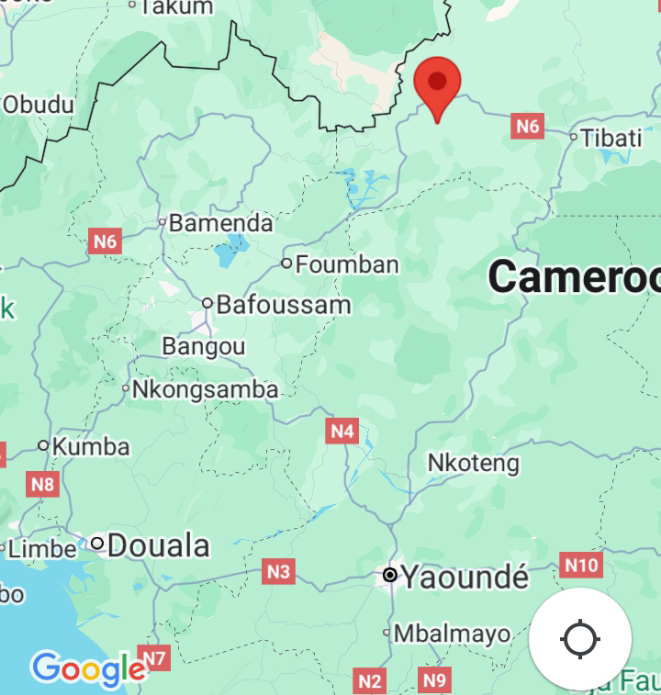Between bloodline, heritage and political loyalty: Is Turaki Adamawa at crossroads?
By Zunnurain Abdul
A compelling and delicate discourse has recently emerged, drawing attention to the complex interplay of family, heritage, and political allegiances. The focal point of this debate lies between Aliyu Atiku Abubakar, the Turaki Adamawa and son of former Vice President Atiku Abubakar, and one Madu Maiha, a public commentator. At the heart of the issue is the perceived conflict between personal loyalty to one's family and heritage, and the pull of in-laws and private relationships, particularly within the shifting dynamics of Nigerian political power.
This situation is uniquely complicated by the longstanding prominence of both the Atiku and Ribadu families. These two powerful northern dynasties not only share immense political capital and traditional influence, but also a marital connection. Yet despite their familial bond, they now find themselves standing on opposite ends of the national political spectrum.
Nuhu Ribadu, currently Nigeria’s National Security Adviser and a close confidant of President Bola Ahmed Tinubu, appears determined to thwart Atiku Abubakar’s presidential ambitions in the 2027 elections. On the other hand, Atiku, a seasoned politician and the Waziri Adamawa, is resolute in his quest to unseat President Tinubu after narrowly losing to him in the 2023 elections.
Amid this backdrop, Aliyu Atiku Abubakar — Turaki Adamawa — has become entangled in a whirlwind of controversy following his visit to the newly established Fufore Emirate. This action, while on the surface may appear familial and innocuous, has drawn intense scrutiny, especially as the Fufore Emirate is perceived by many as a political move to undermine the historic Adamawa Emirate — a traditional institution to which the Atiku family is deeply tied.
Critics, including Madu Maiha, have questioned how Turaki could justify what seems to be a public show of support to an institution his father has openly opposed. The former Vice President had historically resisted the creation of the Fufore Emirate, viewing it as an affront to the centuries-old Modibbo Adama dynasty. Thus, for his son — a direct heir to the Adamawa throne and a council member of the emirate — to visit and pay homage to the Fufore Emir is viewed as a contradiction and even a betrayal of familial and cultural loyalty.
Rather than expressing regret, Turaki’s reaction has further fueled debate. In a social media post, he clarified that his visit was motivated purely by family obligations. According to him, the new Emir of Fufore is an uncle to his wife, and his presence there was an act of respect and appreciation for her unwavering support.
He wrote: “Some have gone as far as describing the visit as an endorsement of the newly established Fufore Emirate... It is important to note that the new Emir is an uncle to my dear wife... I see nothing wrong with having respectful and courteous relationships with my in-laws.” He further insisted that his loyalty to Lamido Adamawa, Dr. Barkindo Aliyu Mustapha, remains “indisputably absolute.”
Turaki emphasized that his appointment as Turaki Adamawa at the young age of 25 remains one of the greatest honors of his life, adding that he remains committed to the Adamawa royal institution. He dismissed critics, stating that they were attempting to politicize a personal family visit, failing to distinguish between political interests and private life.
However, in the conservative and hierarchical setting of northern traditional politics, where loyalty to a single Emir is sacrosanct, Turaki’s actions are difficult to interpret outside a political lens. His open association with a rival emirate, especially one believed to be the product of political gerrymandering by Governor Ahmadu Umaru Fintiri, casts a shadow over his declarations of loyalty to the Adamawa Emirate.
Observers argue that if Turaki truly seeks to maintain a respectful relationship with the Fufore Emirate due to familial ties, while also preserving his loyalty to the Adamawa Emirate, he faces a moral and cultural dilemma. To resolve this paradox and maintain credibility within his heritage, some believe he may need to consider resigning from his traditional positions — particularly as Turaki and as a council member — thereby freeing himself to maintain personal relationships without undermining the legacy of the Adamawa Emirate.
It is a tightrope walk between duty to one's lineage and the emotional obligations of marriage. While Turaki may genuinely desire harmony between both worlds, the power dynamics in play — traditional, political, and familial — make neutrality nearly impossible.
Given the increasingly adversarial stance between the Ribadu and Atiku families in national politics, every move is now scrutinized for deeper meaning. What may seem like a harmless visit is easily interpreted as a strategic political maneuver, especially when traditional structures and legacies are involved.
The lesson in this unfolding drama is that in the intersection of heritage, marriage, and politics, especially in a context as complex as northern Nigeria’s, intentions are never enough. Symbolism, loyalty, and perception carry immense weight. For Aliyu Atiku Abubakar, navigating these waters without sinking either his political ambitions or his ancestral responsibilities will require not just tact — but sacrifice.


